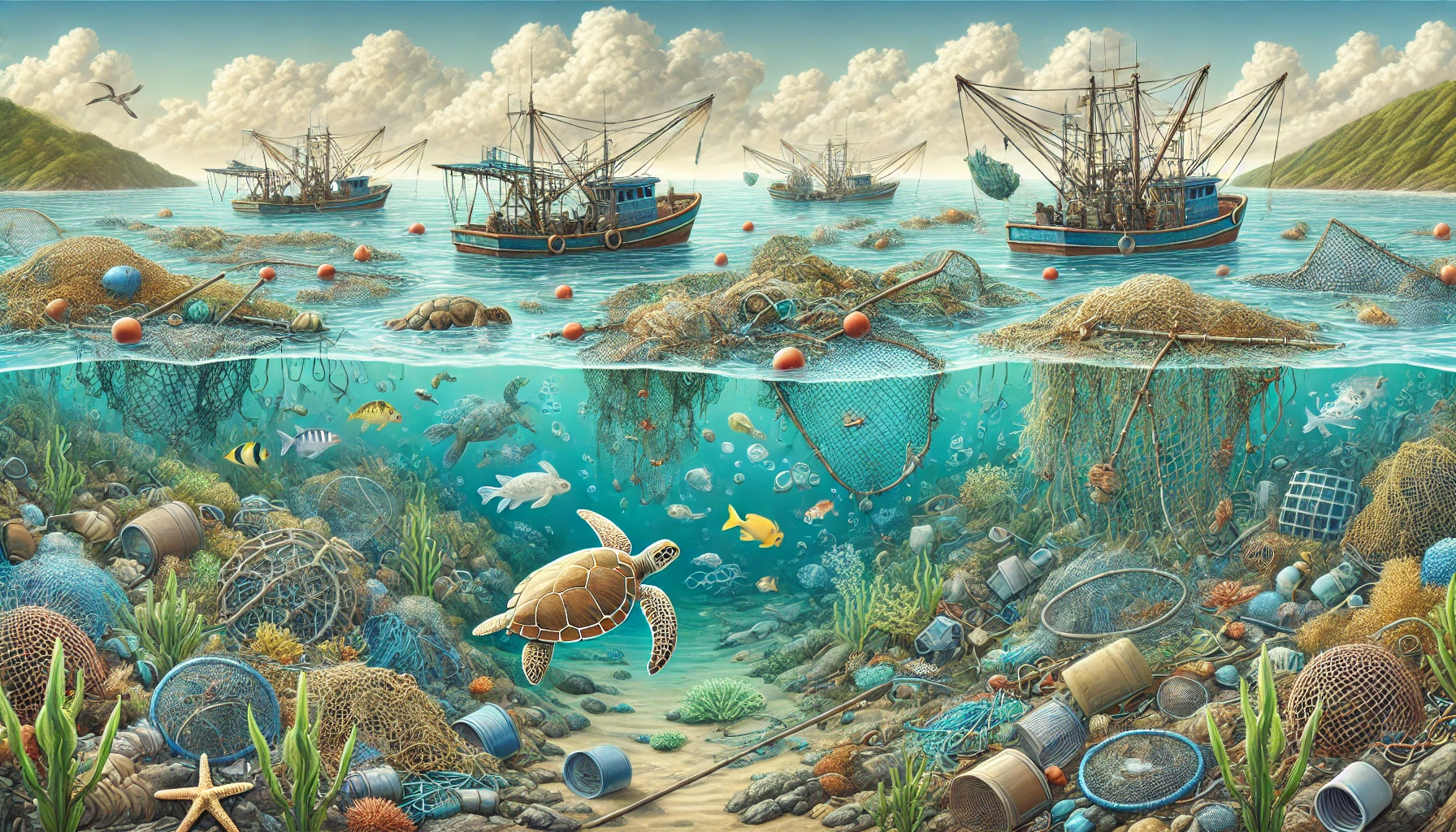Innovative Strategies to Combat the Impact of Discarded Fishing Gear in Oceans
The World Bank's report highlights the urgent need to address abandoned, lost, and discarded fishing gear (ALDFG) through a holistic, life-cycle approach involving prevention, mitigation, and remediation. It advocates global standards, innovative financing, and an International Legally Binding Instrument to reduce environmental harm and promote sustainable fishing practices.

The World Bank, in partnership with the United Nations Environment Programme (UNEP), the Food and Agriculture Organization (FAO), the Global Ghost Gear Initiative (GGGI), and other leading organizations, has unveiled an in-depth study addressing the widespread issue of abandoned, lost, and discarded fishing gear (ALDFG). This gear, a major contributor to marine plastic pollution, poses severe threats to biodiversity, navigation safety, and economic activities. The report emphasizes that current approaches are fragmented, failing to address the full life cycle of fishing gear. While efforts to manage marine pollution and fisheries waste exist, they primarily focus on the usage and end-of-life (EOL) phases, neglecting the crucial design and production stages. This omission perpetuates unsustainable practices, leaving gaps in the fight against ALDFG.
Understanding the Magnitude of the Problem
ALDFG accounts for a significant share of marine plastic litter, with devastating consequences. When abandoned in the ocean, this gear continues to harm marine life through ghost fishing indiscriminate capture of both target and non-target species, and habitat destruction. Additionally, as fishing gear degrades, it generates microplastics, which pose health risks to marine organisms and humans. The problem is compounded by the transboundary nature of marine debris; fishing gear lost in one region often travels great distances, damaging ecosystems far from its origin. The absence of global standards for materials and practices exacerbates this issue, limiting the adoption of innovative solutions such as biodegradable or recyclable fishing gear.
A Holistic Approach to Fishing Gear Management
The report outlines a life-cycle strategy to combat ALDFG, emphasizing prevention, mitigation, and remediation. Preventive measures focus on designing gear with durability, visibility, and tracking capabilities. Features like biodegradable materials and integrated marking systems can reduce accidental loss and aid in retrieval. Fisheries management plays a pivotal role during the usage phase. Improved regulations, such as limiting gear deployment, enforcing spatial and temporal restrictions, and educating fishers about best practices, can significantly curb the incidence of lost gear. Mitigation strategies include implementing escape mechanisms in traps to prevent ghost fishing and using eco-friendly materials to minimize environmental impact. At the EOL stage, the report stresses the importance of accessible recycling and disposal facilities to discourage illegal dumping. Without such infrastructure, fishers often discard gear irresponsibly, further compounding the issue.
Challenges and Opportunities for Small Island States
Small Island Developing States (SIDS) and Less Developed Countries (LDCs) face unique challenges due to their geographic isolation and limited resources. These regions often experience the most severe impacts of ALDFG, as debris from distant fisheries washes up on their shores. The reliance of these nations on marine resources for sustenance and economic activities makes the situation even more precarious. The report calls for tailored solutions, such as international funding, technical assistance, and capacity-building programs, to address the specific needs of these vulnerable regions. These initiatives should focus on establishing waste management systems, promoting sustainable fishing practices, and ensuring equitable access to resources and technologies.
Towards a Global Framework for Action
The report advocates for the establishment of an International Legally Binding Instrument (ILBI) to coordinate global efforts in combating ALDFG. Such an instrument would align and integrate national and regional regulations, ensuring that all stages of the fishing gear life cycle are addressed comprehensively. The ILBI could set standards for fishing gear design, mandate the use of recyclable or biodegradable materials, and require gear marking and tracking to enhance accountability. Additionally, it could establish reporting mechanisms for lost gear and promote environmentally sound disposal practices. By fostering collaboration among governments, industries, and communities, the ILBI would provide the cohesive approach needed to tackle this pervasive issue effectively.
Financing and Education as Catalysts for Change
The report highlights the need for innovative financing mechanisms to support the transition to sustainable fishing practices. Subsidies for alternative gear, buyback programs, and incentives for adopting eco-friendly materials and designs are among the proposed solutions. These measures would ease the financial burden on fishers while promoting environmental responsibility. Education and awareness campaigns are equally critical, as they can transform attitudes and behaviors. By emphasizing the long-term benefits of sustainable practices, these campaigns can foster a culture of accountability and stewardship within fishing communities.
The World Bank and its partners provide a comprehensive roadmap for addressing the challenges of ALDFG. By emphasizing prevention, mitigation, and remediation across the fishing gear life cycle, the report envisions a future where sustainable fishing practices coexist with healthy marine ecosystems. Through coordinated global action, innovative technologies, and targeted investments, significant progress can be made in reducing the environmental and economic impacts of discarded fishing gear. This effort represents a vital step toward preserving the oceans for future generations.
- FIRST PUBLISHED IN:
- Devdiscourse
ALSO READ
Fiji: World Bank Report Calls for Investment in Health System to Combat NCDs Crisis
World Bank Approves $204M NEAT Project to Transform Papua New Guinea’s Energy Sector
Punjab's Pursuit for Progress: Collaboration with World Bank
Haryana's Leap: A Decade of World Bank Development Boost
World Bank Annual Report 2024: Driving Global Development and Resilience










